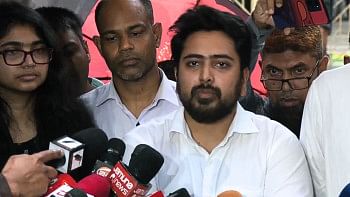Half of Dalits ostracised
Due to their caste and nature of their profession, 50 percent of the 55 lakh Dalits, including 15 lakh Harijans, in Bangladesh became victims of hatred and discrimination at different spheres of society, reveals a survey.
During the 2013-14 survey period, 500 Dalit families fell victim to violence, which includes the rape of five women.
Bangladesh Harijan Oikya Parishad, and the Friends Association for Integrated Revolution (FAIR) in association with Manusher Jonno Foundation revealed the survey, "DALIT Human Rights Situation in Bangladesh 2013-2014" in the capital's Jatiya Press Club yesterday.
The survey made use of local mass and social media and the right to information act.
Some 52.09 percent of Dalits faced discrimination at tea stalls and salons after disclosing their identity, 48.1 percent in getting jobs other than their traditional ones while another 51.9 percent stated that they were barred from taking meals with others, said FAIR Director Dewan Akhtaruzzaman.
Reading out the survey's summary, he said, "Dalit students face discrimination in society, state and even in schools from their classmates and teachers regularly."
He said 295 out of 504 Dalits got the scope to study till class V while 87 up to class X.
The survey says 13 percent stated of facing problems getting their children admitted to schools. Twenty two of 92 guardians said their children were discriminated, neglected or faced negative attitudes from classmates due to their caste and profession, it adds. It says the prime minister instructed the authorities concerned on May 29, 2012 to keep quotas in educational institutions for Dalit students.
In the 2014-15 session, only 25 students got admission in different universities with only five universities approving the quota, it adds. Human rights activist Hameeda Hossain said though Bangladesh was becoming a middle-income country, the status of Dalits would not improve if the discrimination was not addressed. Research and Development Collective Chairman Mesbah Kamal, Nijera Kori Coordinator Khushi Kabir, Manusher Jonno Foundation Director Rina Roy and Oikya Parishad Secretary General Nirmal Chandra Das also spoke.

 For all latest news, follow The Daily Star's Google News channel.
For all latest news, follow The Daily Star's Google News channel. 



Comments